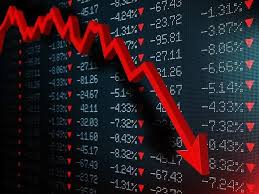World stocks fall as Trump’s China tariff threat dampens risk appetite

A decline on Wall Street dragged stocks across the world further down on Friday on concerns that the two largest economies could resume a trade war, with many financial markets globally closed for a holiday.
The London Stock Exchange Group offices are seen in the City of London, Britain, December 29, 2017. REUTERS/Toby Melville
The euro rose and the U.S. dollar fell broadly, while crude prices traded in and out of negative territory.
London, Tokyo and New York were open Friday, and stocks were pressured lower in reaction to U.S. President Donald Trump’s threat to increase sanctions on China in retaliation to its handling of the coronavirus outbreak.
Trump offered no evidence on Thursday after claiming he’d seen proof that the virus was created in a Chinese laboratory. The pandemic, which has cost tens of thousands of lives in the United States alone, sparked an economic contraction and threatens Trump’s chances of re-election in November.
“U.S. President Trump soured the mood in equity markets, raising his accusations against China about the coronavirus outbreak, threatening new tariffs,” Action Economics said in a report.
The Dow Jones Industrial Average fell 595.75 points, or 2.45%, to 23,749.97, the S&P 500 lost 81.15 points, or 2.79%, to 2,831.28 and the Nasdaq Composite dropped 275.44 points, or 3.1%, to 8,614.11.
The benchmark London stocks index lost 2.34% and MSCI’s gauge of stocks across the globe shed 2.22%. Japan’s Nikkei lost 2.84%.
U.S. Treasury yields were little changed after data showed manufacturing activity in the world’s largest economy plunged to an 11-year low in April.
Benchmark 10-year notes last rose 2/32 in price to yield 0.6181%, from 0.625% late on Thursday.
In a sign of the challenge ahead facing global policymakers, the European Central Bank said on Friday the euro zone economy is likely to rebound in the second half of this year but may fail to return to last year’s level until as late as 2022 due to the pandemic.
However the euro index rose the most in six weeks.
The dollar index fell 0.184%, with the euro up 0.38% to $ 1.0997.
The Japanese yen strengthened 0.41% versus the greenback at 106.77 per dollar, while sterling was last trading at $ 1.2511, down 0.64% on the day.
The offshore Chinese yuan hit its weakest versus the U.S. dollar in a month after Trump’s tariff threats.
Oil prices wobbled again as weak demand due to the virus and excess supply outweighed a record output cut by OPEC and its allies.
U.S. crude recently rose 1.75% to $ 19.17 per barrel and Brent was at $ 26.07, down 1.55% on the day.
Spot gold added 0.8% to $ 1,694.27 an ounce.

